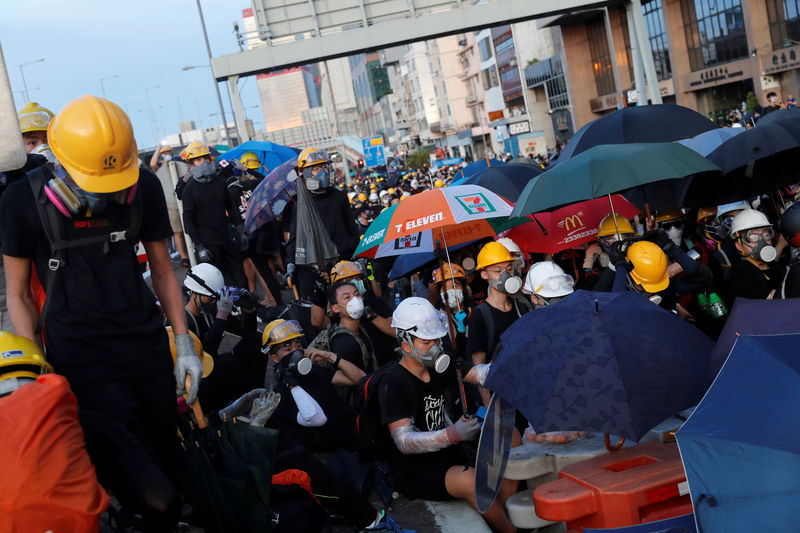HONG KONG (Reuters) - Hong Kong on Monday bore the scars of another night of violent protests with hard hats, umbrellas and water bottles littering some central streets, as Beijing was set to make an announcement on the Asian financial centre's worst crisis since 1997.
In a highly rare move, the Hong Kong and Macau Affairs Office in Beijing, which has cabinet-level authority over the former British colony, is due to hold a press conference at 0700 GMT regarding the unrest gripping the former British colony.
The move comes after another weekend of fierce clashes between protesters and police, who again fired rubber bullets and tear gas as the demonstrations grow increasingly violent.
Police on Sunday sought to defend China's main representative office in Hong Kong from protesters for the second consecutive weekend, with the building near the heart of the financial centre fortified with barricades.
Police said they had arrested at least 49 people in relation to Sunday's protests for offences including unauthorised assembly and possession of offensive weapons.
Millions have taken part in street protests against a now-suspended extradition bill that would have allowed criminal suspects in Hong Kong to be sent to China to face trial in Communist Party-controlled courts.
The protests, which saw hundreds storm the city's legislature on July 1, are the most serious political crisis in Hong Kong since it returned to China 22 years ago, and pose the greatest popular challenge to Chinese leader Xi Jinping since he came to power in 2012.
Hong Kong returned from British to Chinese rule in 1997 under a "one country, two systems" formula that promised wide-ranging freedoms denied to citizens in mainland China.
Many fear Beijing is increasingly chipping away at those freedoms.
What began as a movement to oppose the extradition law has taken on broader demands. They include the resignation of Hong Kong's Beijing-backed leader Carrie Lam, calls for full democracy and an independent inquiry into what some say has been excessive police force against protesters.
Lam has so far refused to accede to any of the demands.
The protests have at times paralysed parts of the financial district, shut government offices and disrupted business operations across the city. Officials have also warned about the impact of the unrest on Hong Kong's economy.
